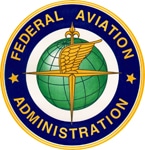
The FAA plans to build on that success by working with airport sponsors over the next 10-15 years to further reduce runway risks through risk-based decision-making. A new FAA national initiative known as the Runway Incursion Mitigation (RIM) program will identify airport risk factors that might contribute to a runway incursion and develop strategies to help airport sponsors mitigate those risks.
Runway incursions occur when an aircraft, vehicle, or person enters the protected area of an airport designated for aircraft landings and take offs. Risk factors that contribute to runway incursions may include unclear taxiway markings, airport signage, and more complex issues such as the runway or taxiway layout. Through RIM, the FAA will focus on reducing runway incursions by addressing risks at specific locations at the airport that have a history of runway incursions.
Risk-based decision-making builds on safety management principles by using a consistent approach to proactively address emerging safety risks. The FAA already has collected and reviewed data to identify specific airport areas with risk factors that could contribute to a runway incursion. The FAA has developed a preliminary inventory of airport locations where runway incursions have occurred. The FAA will work with the airport sponsors to develop strategies to mitigate runway incursions at these locations.
The FAA has kicked off the new initiative as it is wrapping up an extremely successful 15-year program to improve and standardize runway safety areas at the nation’s top commercial service airports.